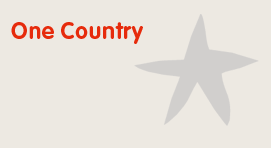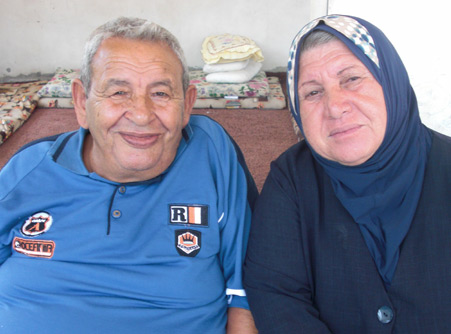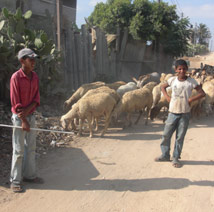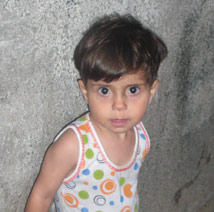


Tuesday’s Child Blog Tuesday’s Child Returns to Gaza – Day 1 Monday 6th July 2009 It is 5.a.m. and I am looking forward to my return to Gaza. My lift outside is bang on time, and we drive through the early Jerusalem. It is quite a beautiful morning, the sun is rising casting an orange glow and I wonder, as we leave the Old City with its majestic buildings, if this is what is was like on the morning of the Resurrection; probably not as hot, this is July, not Easter and there has been a lot of global warming since. The team meet in Ain Karem, the village of the Visitation, and we climb into the large car, creaking with aid. I am glad we packed it yesterday. There are 6 of us, three from our partner group, Sr Susan, Fr Don and Br Andres, me and two visiting priests making their first visit – Fr Avram and Fr Thomas. We drive out of this little village towards Erez with Br Andres at the wheel. We are a multi-national group, one Italian, one Irish, 3 American and 1 German. My prayer is that Gaza will have its freedom soon. An hour or so later, Erez, the northern border of Gaza approaches. A tightness grips me as the sheer grimness of this huge security area, that borders the tiny strip of 25 miles behind it and imprisons 1.5 million people, looms ahead. A formidable, cold, grey steel mass, that looks more like a processing factory than a border. We reach the Erez terminal at 7.30 a.m local time and cross into Gaza at 9.30 a.m.
I am delighted to cross through so quickly with all of my supplies from Belfast including 100 musical instruments, food supplements for children, colouring books and crayons, school supplies, treats and lots of toys. It is a great feeling to walk into Gaza after the huge disappointment of the Rafah border in February. We go through 3 sets of gates as in my first visit last year and then we are met at an inner gate by Palestinian men with very welcome large trolleys.
I can see our aid co-ordinator, Sabah, ahead waving at us from the Palestinian border and I fill up at the joy of seeing her again. I am so very proud of her for the work she and her team have done through the most painful time of the history of this tiny strip of land. Despite dangers during the war, she and her team, brought food parcels and water to families stranded in their own homes. I throw down my rucksack and bags and run over and embrace her, hugging this precious lady tightly. God only knows what she has endured. The joy of our meeting annihilates the sheer destruction on either side of the road and for a moment I cannot find the words. Thank God she is alive and well. Our first stop is a new innovation since my last visit, a Hamas checkpoint that proves longer and more thorough than the preceding Israeli affair, followed by second new innovation, a health assessment, which really boils down to asking for whereabouts while in Gaza and contact details and plan of visit, after which I am asked if I have any flu-like symptoms, coughing or sneezing. A short time later, our aid co-ordinator is called in and asked if she is really a Muslim and why she is collaborating with Christians. Most likely, because we feed all people in Gaza, not just Hamas voters, I think to myself. And then they delay our busy schedule by reading some of the children’s story books for the summer camps. For apart from me, everyone else will leave Gaza today and I know this futile delay will limit the time they have.
We drive through Northern Gaza and the devastation envelops us. The destruction is worse than I ever imagined. I think back to the TV pictures in December of hundreds of tanks traversing this same terrain and the terror they rained. Our first stop, just 5 minutes from the border, is a summer camp the Daughters of Charity are supporting. The children seem to be everywhere and I dig out my pick and mix, purchased in the Via Dolorosa; it disappears to great excitement and delight all round. The children have just had their breakfast of pitta breads and fruit juice. The teachers show us around and all the children are having a good time. Save The Children are also helping with this summer camp. Across the hallway, they unlock a door, and the chilling reality hits home again as I survey the gaping hole in the wall and the huge damage to this classroom by a rocket attack. And Israel say this was not a war on civilians. Again, with all things, there are no materials or means of fixing this shark bite in the wall. Many of these children lost brothers, sisters, parents, cousins and school friends for Northern Gaza sustained by far the greatest injuries in the war.
We say good-bye to the children and travel through Beit Lahyia, This area is grim and everywhere, utter devastation interspersed with people trying to rebuild lives in make shift homes, some tents, some corrugated iron, some shacks covered with blankets. Buildings teeter as if they are about to collapse. Just last week 5 people in this area killed when they returned to their home to clean up the devastation; the roof caved in on top of them. Operation Cast Lead is still claiming lives. Makeshift stone ovens sit along the side of the streets, to bake bread through the heat of the sun, in the absence of both gas and electricity and I marvel, not for the first time, at the resourcefulness of the people. Others sit around fires, toasting bits of bread on long sticks.
We stop at one of the many random camps and children soon come to the car to greet us. The pick and mix goes well here and there is great excitement. The people look dishevelled and I notice one mother and child, both of whom, have extreme trauma written all over them and dirty tear tracks run down a very hungry little face, burnt and sore fron the sun. I ask this woman how she is and she says that while she has lost her home and the little she owned, she is glad to be alive, although life is very hard, we are hungry and living in the tents for so long is difficult. All around, there are scenes of basic survival, people here have made homes wherever they can. An estimated 58,000 homes were destroyed here during the war and before that 5000 homes in 2008 in house demolitions. With an average of 10 people per household, that is 630,000 people displaced, over 25 percent of the population here.
We drive on to another summer camp in Beth Lahyia area, scenes of mass destruction on either side. Sabah chose this area for a summer camp as there is nothing for children in this area. Here, children are playing ball and chasing games and happy faces beam at us. Others I note are playing tug-of-war and I reflect on the irony of it. Fr Don is quick to join in the fun and this 80 yr old Jesuit is pretty agile for his years. A group of kids are playing basketball, however they are using plastic dust-bins at low level for baskets. I show them a few tips and use the space in the high girding above us as a makeshift hoop and kids line up to take shots and practice their technique. I never thought the first thing I would do entering Gaza was give a basketball lesson and I make a point of trying to source proper nets later in the week. We take photos and the children squeal with delight at seeing their faces on the digital camera and I am inundated with requests for more photos.
Other children join in sack races and three-legged races, old games that give fun and cost little. All around happy glowing smiling faces. God only knows what these same children lived through. Many are still very afraid, explains one team leader here, but their time here at the summer camp is happy and fun-filled. They wish the summer camps could last all year. We have a lot to do and it is time to move on. We drive through more destruction and past the American school, that stands in a teetering mess of rubble and twisted metal. This school, focal point to 500 of Gaza’s brightest children, and total aid investment of 5 billion dollars to build, completely destroyed. What bravery it must require to bomb a children's school into oblivion.
Alongside it, 5 school buses lie as burnt out shells. I think of the human right of children to travel safely to school and the work done in other countries to promote safe school transport. I flashback to my childhood and my favourite auntie manouvering the burning buses on the Falls Road in Belfast. While many draw the analogy of the troubles in Northern Ireland to the occupation of Gaza, what these people have had to endure is on a different scale altogether. At least, we could leave, go to Donegal in the summer time, stay somewhere safe. The Gazan people were trapped, they had, and have, nowhere to go to and no place was safe. People fled to UN schools, locations given to Israel, not to be harmed, and these were bombed too. Outside the American school, a car pulls up and it is Fowzia who works with Sabah in the food distribution programme. Fowzia, a wonderful woman with a big heart and huge compassion who, like Sabah, has worked tirelessly for her people. The heat is searing and we drive on to what is left of Fowzia’s home to cool off and have some water. When Israel invaded Gaza, Fowzia’s home was one of the first to be possessed. At least 20 Israeli soldiers moved in as the family evacuated in only the clothes they were wearing. Israeli soldiers destroyed everything in their home including their much loved dog, that they had no time to take, shot through the head. And inside, everything is smashed. All the chairs had large holes cut in them and left so as they could not be used. There are chairs like this now all over Gaza. I wonder is this what Israel pay its army do? Kill family pets and cut up chairs and if the Israeli tax-payers are aware of this.
We sit and talk of many families, many friends and the brutality of the systematic and indiscriminate killings with no regard for civilian safety. In one area, 50 people from one extended family, rounded up and put in a large room and killed one by one in front of each other. The youngest baby was with another woman looking after him that morning; the soldiers came, found the infant and shot it in the head, then threw the baby’s body on the pile of other bodies. Over the coming days, many dogs and other animals gathered in this area and ate the corpses. The Red Cross, particularly concerned about this area, tried to access it many times but could not get through Israeli checkpoints.
It is amazing, given the sheer artillery that entered this strip of land that more than the 1400 people who lost their lives weren’t killed. Enough warpower invaded to destroy a continent. These are only the official numbers, I am told. Many more are unaccounted for. The death toll is much higher than published figures. In the forecourt here, we sort the schools supplies Sr Susan has brought for the various schools and we give the money for the next food distribution. Sr Susan, has helped people in Gaza over the last 14 yrs, travelling in on a regular basis from Ain Karem. Sr Susan, is also a Sheehan, we are not related although we share the same ancestral home of North Cork. The monthly food distribution now costs Tuesday’s Child, £11,000 stg a month for 300 families and just under 2000 people. It is great to hand the 132,000 shekels for food over in person. This is for food for July and August and I give thanks to the Irish music stars who performed in our gig for Gaza and made the extended feeding programme possible. I also carry donations of a further 70,000 shekels with me in cash to distribute according to need. Money belts here are not safe and so the cash is secreted in a large box of tampax, always a useful decoy when your bag is checked. Time now for the rest of the party to return to Erez and cross back and we say our good-byes. I will miss everyone and the camaradie of this group. It is a pity they cannot stay for a few days even. I travel on with our team to source accommodation as my planned address for the 14 days has fallen through. Our first stop is a hotel, often used by NGOs and journalists, however they have a large delegation just arrived from France, and so there is no room at the inn. We settle for a hotel on the beach and I learn I am their only guest for the night. The only guest in 150 rooms which just about sums up the damage of the blockade to tourism in Gaza. Many hotels like this lie empty. Many others damaged beyond repair. I check in, shower and change and arrange to meet up with Sabah later. There is no air conditioning and the heat is stifling. However, at least I have hot water, a proper bed and a flushing toilet which is more than can be said for almost all people in Gaza tonight. Sabah and her husband, Nazem, call for me and we drive to their home and meet their 4 children, two of whom, I have met before. Four lovely children, who have never been able to travel outside of Gaza; their world consists of 25 miles of occupation and blockade and the daily persecution that goes with the territory.
We sit and they talk of the war, and the sheer trauma that shook this 25 mile stretch of land for almost as many days and I listen. The sheer fear and terror experienced by this family comes to life as they show me where they sat, on the floor, in the most secure part of their apartment, afraid to move, with no food and only a little water for days. “Sometimes, we shuffled into the kitchen area for a change of scene, however, we were almost afraid to move. So many people died in Gaza if they moved, even a small distance”, explains Nazem, “husbands were killed beside wives, and wives beside husbands. When we did venture to the windows, the sky was black with F16s and apache helicopters (I wince as I think that the warheads for these are manufactured in Co. Kerry) and from the coastline the endless shelling from Israeli war boats. It was coming at us from the air and the sea. And it was freezing as we had to keep the windows open completely for flying glass also killed and injured many. The sound was deafening. Our building is high, we could see everything and hear the cries and screams and the smell, the smell was the worst, the smell of blood mixed with rotting flesh and pungent smells of shells. All of Gaza cried in pain and it was as if, up here, we could hear every cry and scream”. And yet, still, in all of this Sabah left her home to distribute food parcels. Incredible bravery. The families in this apartment block thought, given its height and view over Gaza city, it would be occupied by Israeli soldiers as a perfect killing position. They all agreed together they would die rather than let their homes be used as killing zones. I return to my hotel at 1 a.m. Everything is in darkness as there are no street lights and not a car on the road, apart from ours. Just as I am walking up the large staircase everything pitches into darkness. I can see nothing, I cannot go forward or back, so I crouch and put my bum on a stair, relieved I had found one and also that this hotel has no lift. The staff shout up power cut as it if is routine, well it probably is, and I wonder how I will make it up the next 6 flights to my room. Eureka, the torch on my mobile. I take it out and the charge has gone. I sit for some time and then, eventually there is light. The staff shout up the generator has kicked in and I make for my room. Just as I approach, it goes again and pitch black again as and I fumble for the lock, everything is in complete blackness, not darkness, just black. I finally get in, feel my way along the walls, then the bed and the phone. I lift it to ring reception and it’s dead. Pitch black, no phone, no mobile... let’s hope Hamas don’t come calling now. I lie on top of the bed and all the images of today run through my mind. I think of all the families who were holed up in similar blackness during the war and their fear with the sounds of death all around. The rockets, the shelling, the bombardment from land, air and sea, facing machine guns at close range, beatings and the horror of white phosphorus. Seeing houses bombed and loved ones killed and burned. Parents lifting blackened bodies of children out of the ground and body parts everywhere with the rancid smell of rotting flesh. It all seems more horrific in the dark. I try and focus on the busy day ahead and our itinerary for tomorrow and then the light comes on. I lift my prayer book of inspirations and I open it at “be courageous and strong” and I think how silly I am to fear the dark, for I usually have no fear of anything. I charge my phone and make a mental note to buy some matches for my travel candle. I open another book of inspirations from Directions for Our Times and the words are “Be at peace, now, my little one. I am holding you tightly”. The message brings great comfort, for it is in His name, we work. My head hits the pillow and with the visions of the day still flashing through my mind, I fall asleep. If you are in a position to help any of the families we met during our time in Gaza, please contact us at info@tuesdayschild.co.uk or donate online here » |
||||
 |
Country Spotlight: Bosnia - Herzegovinia... Tuesday’s Child’s first project was building a safe playground for children with severe disabilities in a little school Sunce (sunshine) in Mostar, the front line of the Bosnian-Serbian war, which left 14 percent of children orphaned. On our first visit, we met an American lady Janet Leff. Janet has worked tirelessly throughout the region since the war and has touched the lives of so many. Tuesday’s Child is fundraising to sponsor a range of Janet’s projects for children and families…… educational materials, computers, dental treatment, wood for the winter, playgrounds, medical supplies and supporting severely ill children with specialist medical treatment. Find out more about the Countries we help... |
Tel: +44 (0)289 050 2725 | Mobile: +44 (0) 7545 452362 | Email: info@tuesdayschild.org.uk | Terms

















